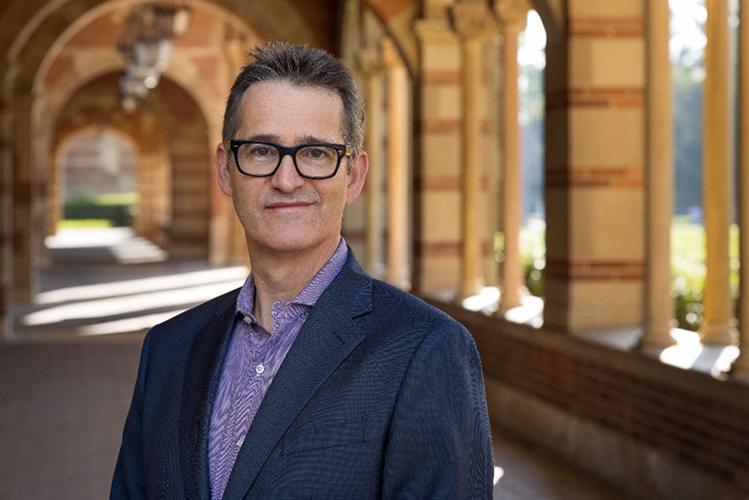"Decolonial Theory or the Invention of a Common Enemy"
par Dominic Thomas, Nicolas Bancel and Pascal Blanchard

La revue Contemporary French & Francophone Studies: Sites publiera prochainement un article de Dominic Thomas, professeur au département de langues européennes et d’études transculturelles à l’UCLA, Pascal Blanchard, historien, spécialiste du fait colonial et Nicolas Bancel, historien, spécialiste de l’histoire coloniale et postcoloniale française. Retrouvez ici, en avant-première, les grands axes de cet article publié dans ce numéro focus sur la France qui est une occasion de se pencher sur l’exceptionnalisme français : l’Islam et la rhétorique de la laïcité, mais aussi les enjeux d’identité, l’islamo-gauchisme, le poids du passé colonial… Ainsi, l’article « Decolonial Theory or the Invention of a Common Enemy » fournit des pistes pour comprendre comment le discours politique autour des questions sur l’islam vient infléchir l’idée et l’idéologie de la laïcité en France. Il met également en lumière la façon dont la rhétorique de la laïcité pourrait à son tour infléchir la conception de l’islam. Dominic Thomas en présente ici un résumé.
On both sides of the Atlantic, polemics have been raging on complex questions relating to identity and race. In the United States, these debates have given rise to new concepts and terms, including “cancel culture,” “wokism,” and “critical race theory.” Just about everyone has heard of these, although few people are able to say what they actually mean. Analogous circumstances are to be found in France where groups have sought to discredit scholarship on decolonial, postcolonial, and intersectional studies. This has been intriguing to American observers since historically, France has enjoyed a reputation for fostering theoretical dialogue, a tradition that enhanced its international reputation and that has been a tremendous source of pride.
A group of militant academics have appropriated and instrumentalized the notion of “decolonialism” (under the aegis of the Observatory on Decolonialism) and positioned themselves as the self-appointed imaginary defenders of academic freedom in research. They have identified the primary corrupting influence as originating in the United States, their attacks have been relentless and their impact wide-reaching, labeling scholars who embrace these nefarious imports “Islamo-Leftists.” Indeed, analogies have been made between their operational tactics and the allegations, accusations, campaigns, and practices evident under Senator Joseph McCarthy in the early 1950’s. In the process, they have effectively created a “common enemy” and given oxygen to an antagonism aimed at scholars who have elected to subject French Republican ideals to greater scrutiny. According to them, this “enemy” must be shamed for having the audacity of highlighting shortcomings in secularist policies and underscoring France’s inability to address structural racism and disquieting forms of Islamophobia. Our contribution to this volume traces the genesis of this movement and examines how it has permeated political discourse.
According to their argument, decolonial theory has not only “deconstructed” but ultimately “submerged” French Universalism, most notably RepublicanUniversalism. Signs of “decolonialism” are literally everywhere, gaining ground in every facet of our society, and every social ill can be attributed to it. The term “decolonial” has now become synonymous with all that is anti-France and anti-Republican, in other words the product of a process emphasizing guilt for the Hexagon’s painful colonial past. Among their adherents, one finds outspoken critics of immigration and multiculturalism, as well as reactionary columnists. In short, those who practice decolonial or postcolonial theory are accused of destabilizing French society by importing “foreign theories,” a conclusion that therefore serves to justify opposition to this common enemy. For the philosopher Pierre-André Taguieff and his followers, the emphasis on a radical “Islamo-Leftist” alliance warrants a full-fledged counter-attack against those who seek to contest France’s glorious colonial past as a step towards overthrowing or toppling the Republic.
In countering these assaults on scholars and scholarship, our article is therefore also a reminder of the multiple ways in which decolonial and postcolonial studies have been helpful in ascertaining the long-term impact of colonialism both in former colonies and in the countries that had colonies. Decolonial studies offer a global and radical perspective, most notably in the concern with privileging critical indigenous methodologies as a path to deconstructing the West’s “epistemological hegemony” and history of conquest, in other words its attempts at imposing a monolithic standard for universalism. Likewise, conducting research on these matters from a postcolonial perspective seems perfectly legitimate, particularly when one considers how colonial representations of former colonized populations persist, how the racial unconscious has survived, how France’s incestuous relations with its former colonial territories in Africa remain alive and well in their neocolonial forms, how France continues to struggle to define its relation with Islam, to reckon with questions of restitution and reparation, and the colonial legacy itself.
EDITORS’ INTRODUCTION
Ally Ladha, Roger Célestin & Eliane DalMolin
INTERVIEWS
Elisabeth Roudinesco : Interviewed by Christine Fizser
Fatima Dass : Interviewed by Adina Stroia
ARTICLES
Alec Hargreaves, Lopsided laws: French Muslisms and laïcité
Stéphane Beaud, Charlie Hebdo and the Belhoumi family
Dominic Thomas, Nicolas Bancel & Pascal Blanchard, Decolonial Theory or the Invention of a Common Enemy
Ahmed Boubeker, L’islam de France ou les banlieues de la laïcité
Hamza Esmili, La possibilité d’un complot. La France face à « l’islamo-gauchisme »
Ibrahim Bechrouri, From Red and Green Decay to ‘Islamo-leftism’: the Counterinsurgency fantasies of the French Elite
Mohamed Amer Meziane, The Sexular State Race, Gender and the Other “Woke Controversy”
Jean Beaman & Aurélien Mondon, Islamo-gauchisme and Critical Race Theory
Raberh Achi, La France, l’islam et la loi de 1905 Genèse coloniale d’un poncif : l’incompatibilité
Jeremy Guedj, Les juifs et les musulmans en France devant la laïcité. Comparaisons et convergences
Emilio Spadola, The Rhetoric of Secularism: Allegory and Islamo-gauchisme
Mary-Elizabeth Allen, There is no laïcité in France
